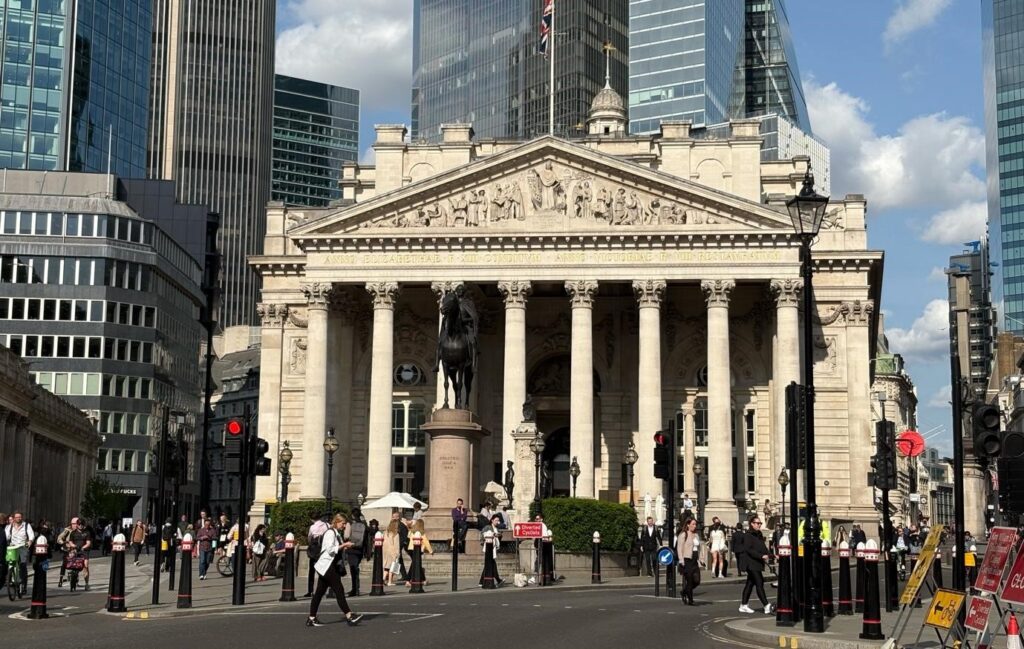|
Getting your Trinity Audio player ready...
|
How do you keep a new industry on the straight and narrow while also letting it explore, invent, and, well, try out crazy ideas and see what works?
That was the subject of a panel on crypto and blockchain regulation organized in London by Block Dojo, a tech incubator, and CMS, a law firm. Chairing the event, Block Dojo’s Alex Ball asked his guests to envisage a “crypto roadmap”—a “yellow brick road” for Britain to the Land of Oz.
The United Kingdom is the fastest-growing crypto market in the world, Ball said. Today, over seven million adults own crypto. So it’s “leading the world in adoption,” but it’s way behind in regulation.

Jannah Patchay, Executive in Residence at Global Digital Finance, picked up the story, tracing the tortuous history of the involvement of Britain’s Financial Conduct Authority (FCA) with crypto. There was a consultation in 2019, but then “six years went by and nothing happened.”
Now, under Britain’s new Labour government, the FCA has been told it must get its act together. It has published a plan—a two-year timeline for implementing regulation. So there’s the “nightmare scenario,” Patchay said, of having to get there in a “very compressed amount of time.”
Charles Kerrigan, a partner at CMS, said that for a long time, policymakers didn’t want to regulate crypto “because it would make it look legitimate.” But with the new regulations, “it’s going to be super-expensive to comply.” So, the question is whether companies will want to base themselves in the U.K. or will go elsewhere in search of cheaper, less regulated alternatives.

More fundamentally, Kerrigan said, no country can be, as the Treasury’s announcement about the new regulatory regime promised, both “the most innovative” and “the safest” jurisdiction on the planet. But that was only the message for the public, he believed, not what the decision-makers in the Treasury really thought.
If you take a moment to look at the press release for Rachel Reeves’ draft legislation, it offers a vision of “cracking down on bad actors while supporting legitimate innovation,” just as Charles said.
The government wants to sound go-ahead and whizzy, so there is a promise of links with the States in a new “UK–US Financial Regulatory Working Group,” which will discuss proposals for “a transatlantic sandbox for digital securities.” (A transatlantic sandbox? Could get a bit soggy?)
If you’re not sure what it adds up to, the PR summary is that “Britain is open for business, but closed to fraud, abuse, and instability.”
But how is that going to play out in the real world? Anya Markitanova, who is in charge of Institutional Partnerships at the digital assets exchange Archax, distinguished between retail and institutional players in crypto—retail being individual investors, sitting at home, hoping to cash in on the latest crypto trends—or scams—and institutional being big financial services businesses. The latter, she said, don’t want to miss out, but they also want “peace of mind.”
Increasingly, its seems that FOMO is gaining the upper hand in that battle. Markitanova said that institutions who questioned crypto a few years ago now realize the benefits of bringing some of their activities on chain.
Like it or not, there will be a new regime of U.K. regulation starting at the end of 2026. “The new machine is coming,” said Patchay. But it could take up to two years after that for a company to be registered. So, she warned businesses, don’t count on U.K. registration. Take a look at other places: “you need to have a jurisdictional Plan B in your pocket.”

The whole evening was an informative and sobering picture of what lies ahead in regulation. There was no time to discuss what effect new a tokenized, blockchain, ‘cryptofied’ economy would have on the ordinary world of people and jobs, or how AI comes into it.
“Are we there yet?” No, we are still on the road to Oz and waiting to find out whether the crypto wizards are as powerful as they look today.
Watch: Breaking down solutions to blockchain regulation hurdles

 03-05-2026
03-05-2026 




